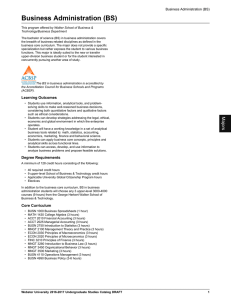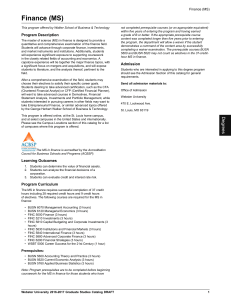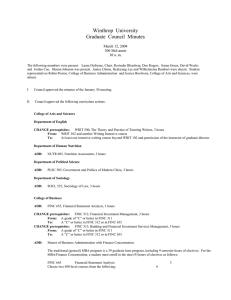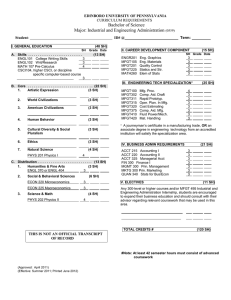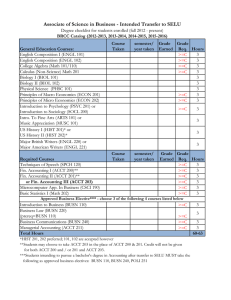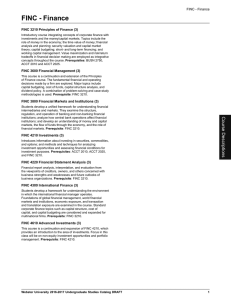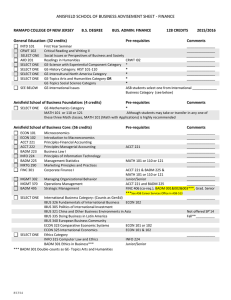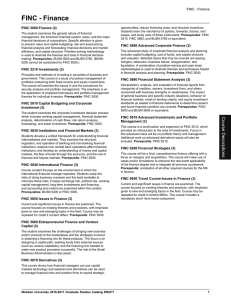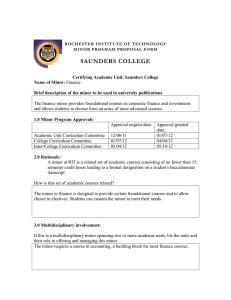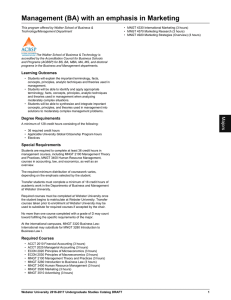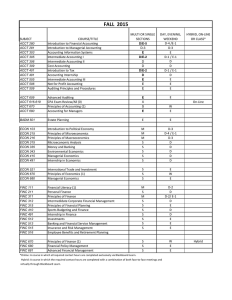Finance (BS) Program Description
advertisement
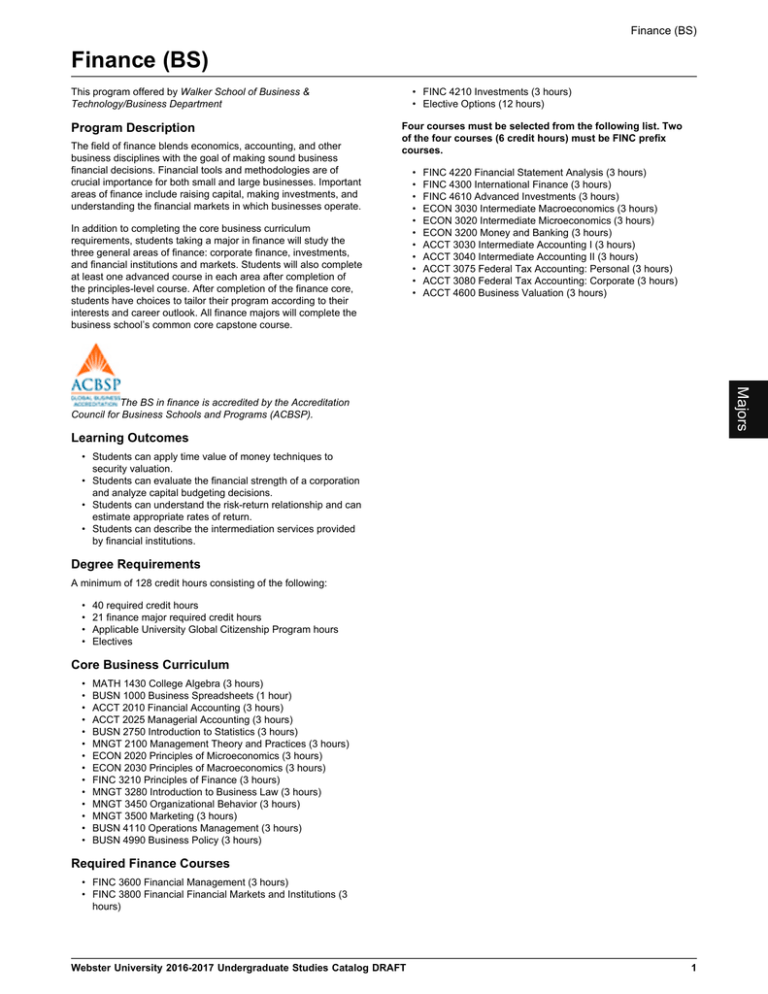
Finance (BS) Finance (BS) This program offered by Walker School of Business & Technology/Business Department Program Description The field of finance blends economics, accounting, and other business disciplines with the goal of making sound business financial decisions. Financial tools and methodologies are of crucial importance for both small and large businesses. Important areas of finance include raising capital, making investments, and understanding the financial markets in which businesses operate. • FINC 4210 Investments (3 hours) • Elective Options (12 hours) Four courses must be selected from the following list. Two of the four courses (6 credit hours) must be FINC prefix courses. In addition to completing the core business curriculum requirements, students taking a major in finance will study the three general areas of finance: corporate finance, investments, and financial institutions and markets. Students will also complete at least one advanced course in each area after completion of the principles-level course. After completion of the finance core, students have choices to tailor their program according to their interests and career outlook. All finance majors will complete the business school’s common core capstone course. • • • • • • • • • • • FINC 4220 Financial Statement Analysis (3 hours) FINC 4300 International Finance (3 hours) FINC 4610 Advanced Investments (3 hours) ECON 3030 Intermediate Macroeconomics (3 hours) ECON 3020 Intermediate Microeconomics (3 hours) ECON 3200 Money and Banking (3 hours) ACCT 3030 Intermediate Accounting I (3 hours) ACCT 3040 Intermediate Accounting II (3 hours) ACCT 3075 Federal Tax Accounting: Personal (3 hours) ACCT 3080 Federal Tax Accounting: Corporate (3 hours) ACCT 4600 Business Valuation (3 hours) Majors The BS in finance is accredited by the Accreditation Council for Business Schools and Programs (ACBSP). Learning Outcomes • Students can apply time value of money techniques to security valuation. • Students can evaluate the financial strength of a corporation and analyze capital budgeting decisions. • Students can understand the risk-return relationship and can estimate appropriate rates of return. • Students can describe the intermediation services provided by financial institutions. Degree Requirements A minimum of 128 credit hours consisting of the following: • • • • 40 required credit hours 21 finance major required credit hours Applicable University Global Citizenship Program hours Electives Core Business Curriculum • • • • • • • • • • • • • • MATH 1430 College Algebra (3 hours) BUSN 1000 Business Spreadsheets (1 hour) ACCT 2010 Financial Accounting (3 hours) ACCT 2025 Managerial Accounting (3 hours) BUSN 2750 Introduction to Statistics (3 hours) MNGT 2100 Management Theory and Practices (3 hours) ECON 2020 Principles of Microeconomics (3 hours) ECON 2030 Principles of Macroeconomics (3 hours) FINC 3210 Principles of Finance (3 hours) MNGT 3280 Introduction to Business Law (3 hours) MNGT 3450 Organizational Behavior (3 hours) MNGT 3500 Marketing (3 hours) BUSN 4110 Operations Management (3 hours) BUSN 4990 Business Policy (3 hours) Required Finance Courses • FINC 3600 Financial Management (3 hours) • FINC 3800 Financial Financial Markets and Institutions (3 hours) Webster University 2016-2017 Undergraduate Studies Catalog DRAFT 1
